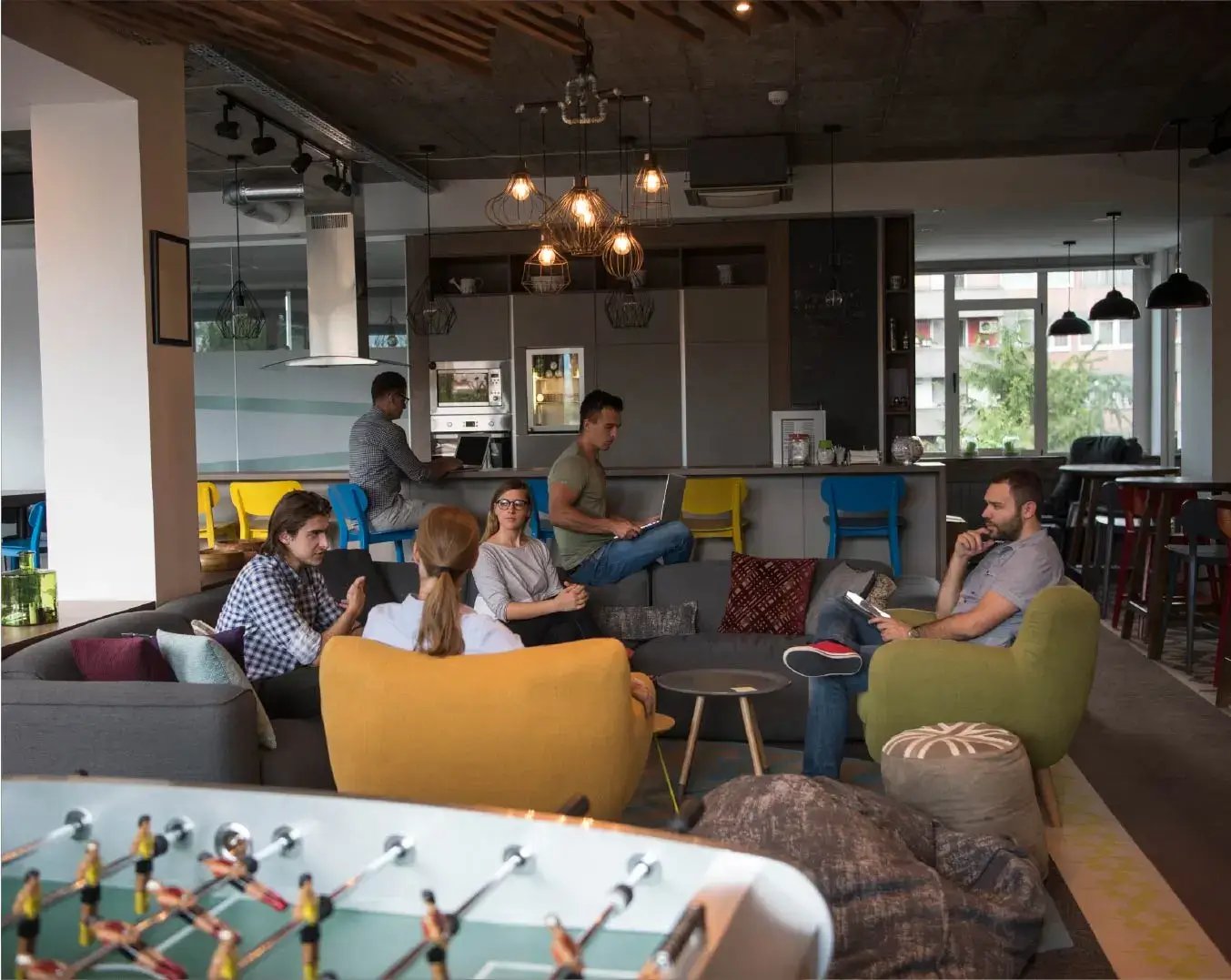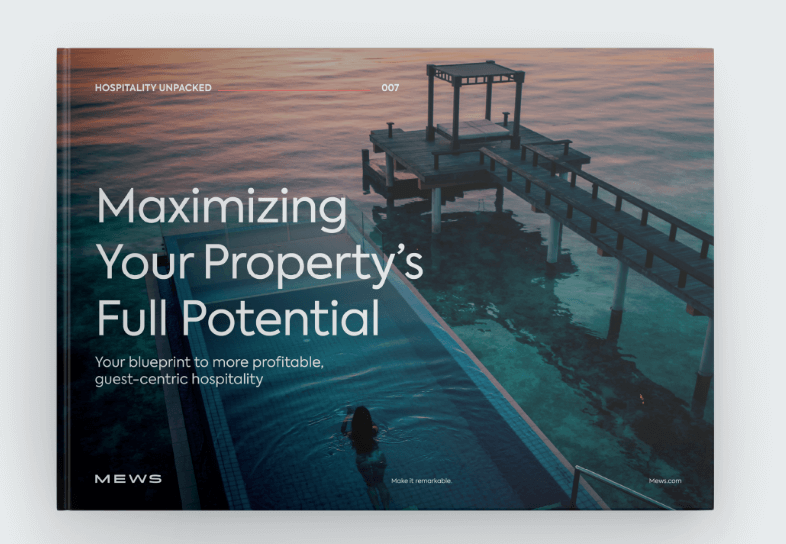Office hoteling is a concept that has gained traction alongside the rise of hybrid working models, digital nomadism, and work-from-anywhere policies. This approach optimizes office space for businesses by reducing fixed costs and fostering a more flexible work environment for employees. For hoteliers, office hoteling presents an opportunity to generate an additional revenue stream and transform their properties into dynamic spaces.
Let's delve deeper into the concept of office hoteling, exploring its benefits and best practices. By adopting this strategy, you can boost incremental revenue, diversify revenue streams, and cultivate a vibrant environment at your property.
Table of contents
What is office hoteling?
Office hoteling is a flexible workplace strategy that liberates employees from fixed office locations. Instead, individuals can choose to work in different spaces across various locations, accommodating flexible work arrangements such as remote work. Office spaces can be reserved in advance for extended periods.
These spaces are typically booked through a reservation system or software, streamlining organization for both the user and your property. As we transition towards hybrid work models, office hoteling presents an ideal solution for users and a lucrative revenue opportunity for hotels with unused space.

What are the benefits of office hoteling in the hospitality industry?
Office hoteling offers numerous benefits – optimizing the utilization of available space, enhancing adaptability, and capitalizing on otherwise unused areas.
Optimized usage of hotel spaces
Hotels often have ample unused space, and office hoteling represents the future of mixed-use spaces by efficiently utilizing hotel areas that would otherwise remain idle. While having a spacious lobby or bar for guests is desirable, converting part of this space into dedicated workstations can not only generate additional revenue but also enhance the dynamism of existing areas.
An additional revenue source
Guests working from your premises are more likely to patronize your bar or restaurant, ensuring that those using the lobby or bar are contributing financially. This approach also provides opportunities to promote ancillary services, such as offering workspace at a reduced rate or creating digital nomad or working packages that include workspace, accommodation, and consumption at the hotel's bar and restaurant.
Adaptability
Our industry requires constant revision of services and amenities to stay competitive. This adaptability also enhances the appeal of facilities to a broader audience. Office hoteling is an intriguing trend that can boost ancillary revenue and diversify income during periods of low demand or off-peak seasons.
Best practices for office hoteling in your property
Office hoteling, when implemented effectively, can yield substantial financial gains by diversifying revenue streams. It also attracts target audiences who might not typically stay at your hotel.
Use a space management tool
Utilize a space management tool like Mews Hotel Space Management to plan workspace rentals by the hour, day, or month. It lets you automate booking processes to minimize the risk of overbooking, increase revenue, and optimize profit. Mews property management system also enable rate adjustments. Integration with other tools ensures seamless coordination among your staff.
Monitor insights
Monitor insights and track analytics to ensure that office hoteling drives revenue rather than incurring costs. Analyze popular areas within your hotel to adjust pricing accordingly. For instance, if the lobby spots are highly sought after, consider charging a premium hourly rate while offering a competitive daily rate.
Make sure the booking platform is user-friendly
Ensure that the booking platform for reserving workspace desks is user-friendly for both guests and staff. The platform should accommodate groups and provide options for meeting rooms to cater to various needs.

Adjust prices for demand and group size
Similar to hotel room pricing strategies, adjust workspace prices to align with demand fluctuations. Reduce prices during low season to attract guests seeking accommodation and workspace, potentially drawing those from nearby areas with promotional rates. Conversely, implement higher rates during peak demand periods such as conventions or major local events.
Consider setting different price tiers for groups versus individuals. Competitive group rates may incentivize companies to organize meetings or team-building activities at your hotel, capitalizing on the growing trend of remote work. Offer discounted rates for individuals working from your facilities for extended periods, while premium hourly rates can be applied for shorter durations.
Consistently monitor your comp set
Regularly monitor your comp set offering office hoteling services to stay informed about their pricing strategies and packages for individuals and groups. Understand which areas they prioritize for office space and the associated rates.
Observe additional services they provide, such as complimentary beverages, discounts at the hotel bar or restaurant, and bundled packages combining accommodation with workspace at a reduced rate. Utilize this information to tailor your offerings and remain competitive in the market.
Conclusion
Office hoteling represents a dynamic solution for optimizing your hotel's space. It empowers hotels to diversify revenue streams and attract a new demographic of digital natives who value flexibility and mobility.
Adaptability is crucial for long-term success. Staying abreast of industry trends and embracing innovative concepts like office hoteling can enhance your profitability in the long run.
Download our guide Maximizing Your Property's Full Potential


Author
Eva Lacalle
Eva has over a decade of international experience in marketing, communication, events and digital marketing. When she's not at work, she's probably surfing, dancing, or exploring the world.

Essential hotel technology for general managers
Download now
Hospitality hot takes straight to your inbox


.webp)